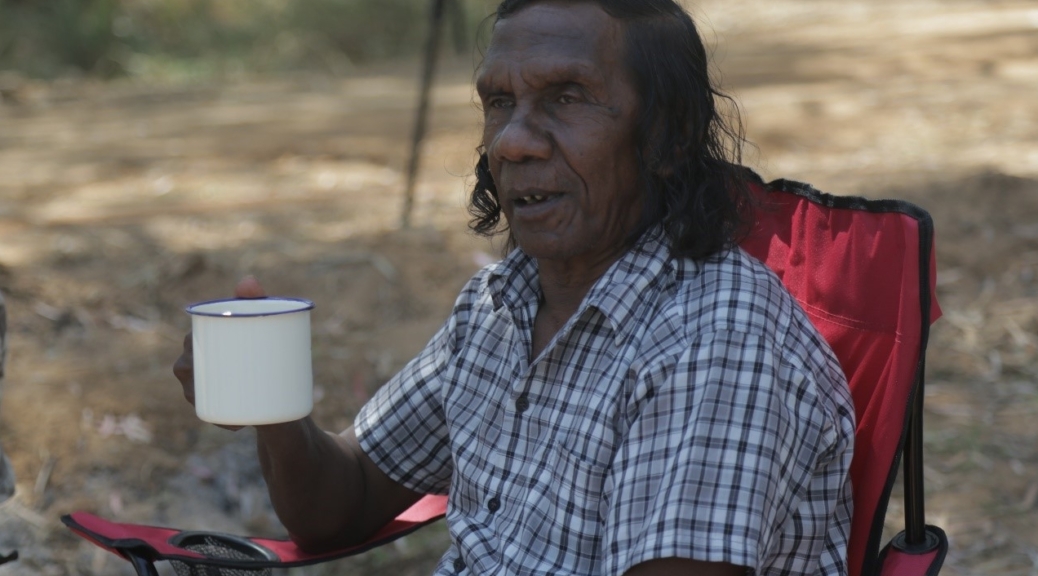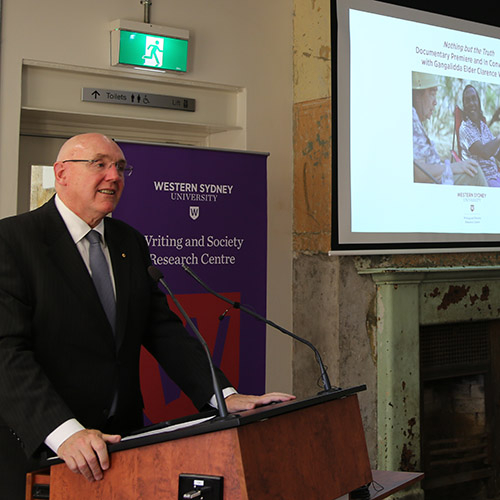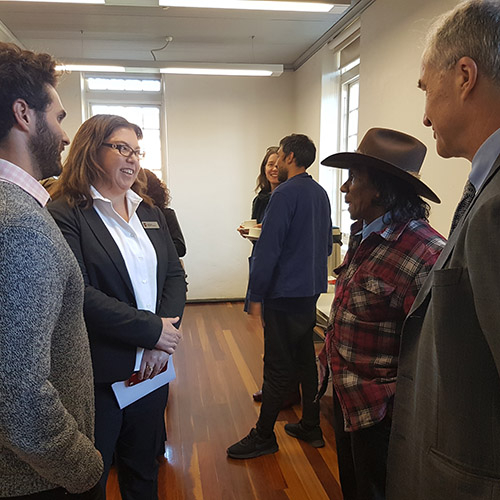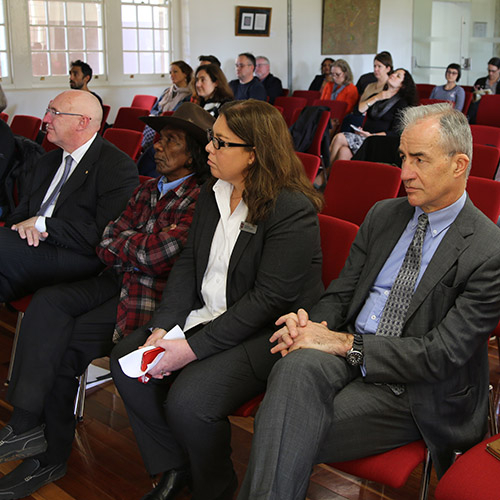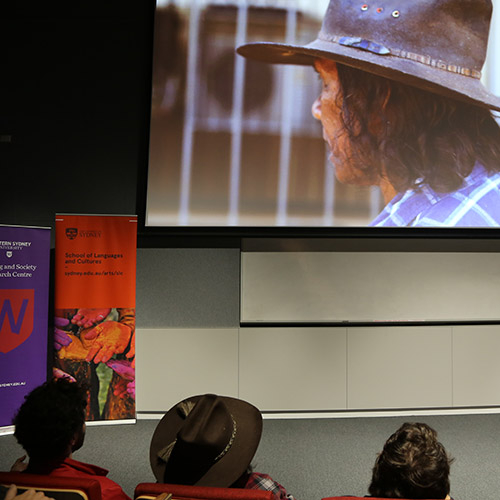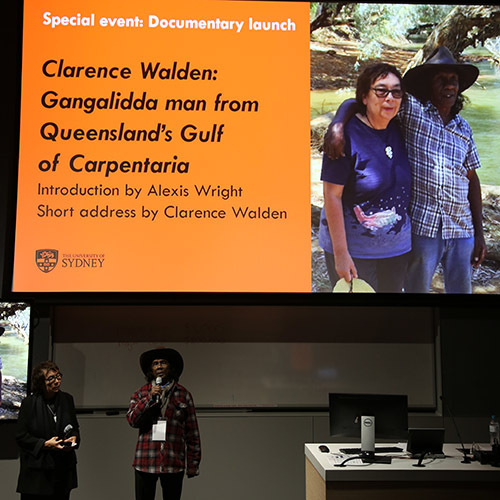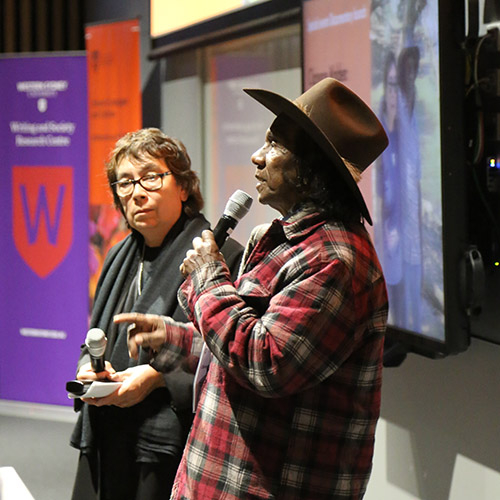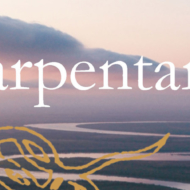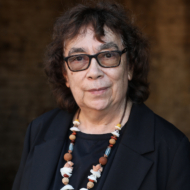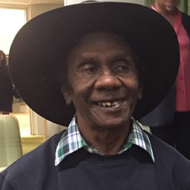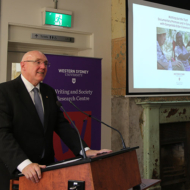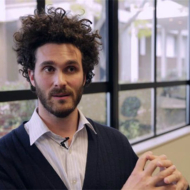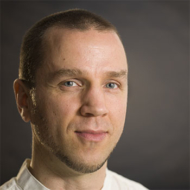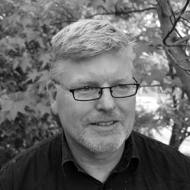A major project within the ‘Oral Storytelling’ theme was a collaboration between Alexis Wright and Gangalidda storyman and political leader, Clarence Walden, one of Other Worlds’ storytellers in residence. Wright led the recording team of Ben Denham, Ben Etherington, and Andre Sawenko to the Gulf of Carpentaria where she and Walden recorded stories and conversations over several days.
These formed the basis for two documentary features: a fifty-two-minute radio feature Nothing but the Truth produced by Wright and Etherington (audio also available) and a screen documentary, Straight from the Heart, directed by Denham.
Gangalidda is just to the north of Wright’s Waanyi country. Walden was raised in Doomadgee, a mission established by the Christian Brethern, first on the coast in 1933 before it was moved south to the Nicholson River following cyclones in 1936. This mission brought together people from various language groups of the lower gulf, predominantly Gangalidda, Garawa, and Waanyi.
Walden took Wright and the crew around the old mission buildings still standing in Doomadgee and explained the institutional controls and abuse that the children and teenagers interned on the mission were subjected to. The mission was separated from the town where Aboriginal families lived by a rodeo ground and the movements of Aboriginal people on and off the mission were controlled. The sites that Walden and the team visited included the old hospital where he and his siblings were born, the boys dormitory, the school buildings, and the missionary jail in the yard of the superintendent.
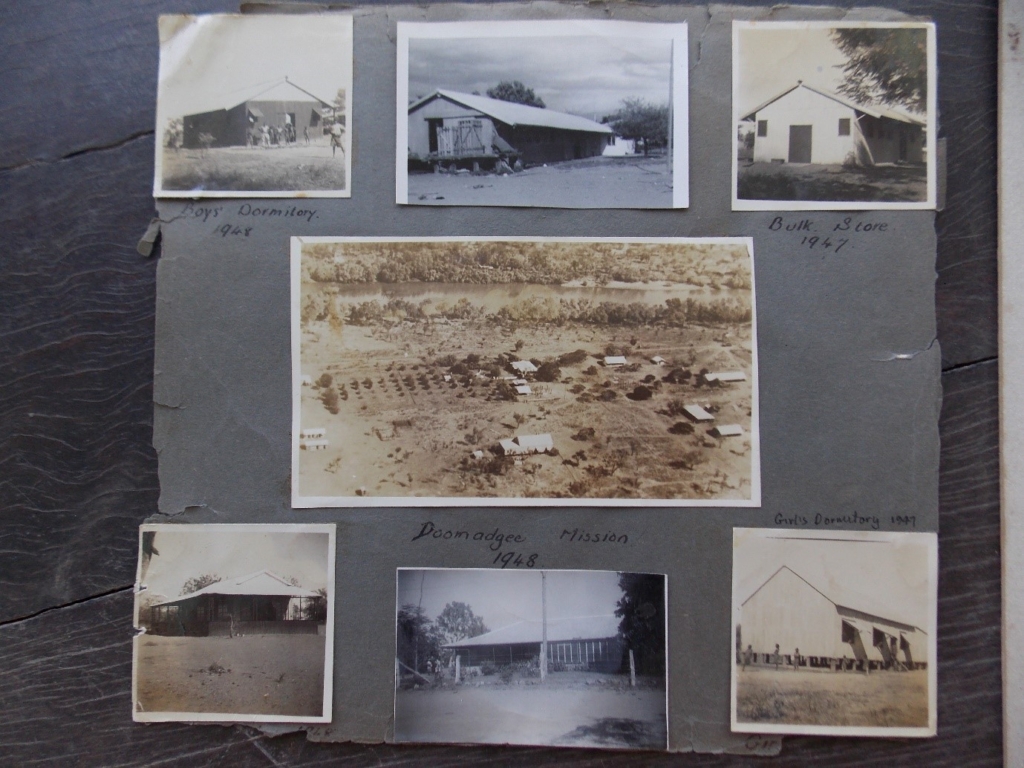
The jail was a tiny unventilated tin-roofed structure in which several people might be incarcerated at once. Walden described various features of life on the mission including having his mouth washed out with soap if he spoke his language and being surveilled while bathing. People were forced to walk around in potato sacks if caught leaving the mission, there were beatings and humiliation in the classroom, strict curfews, and extra-legal incarceration in the jail. Walden also discussed the largely theological curriculum taught by the missionaries, which he found arbitrary and without relevance to his life and culture. Children would do menial tasks like cutting wood and delivering it to missionaries.
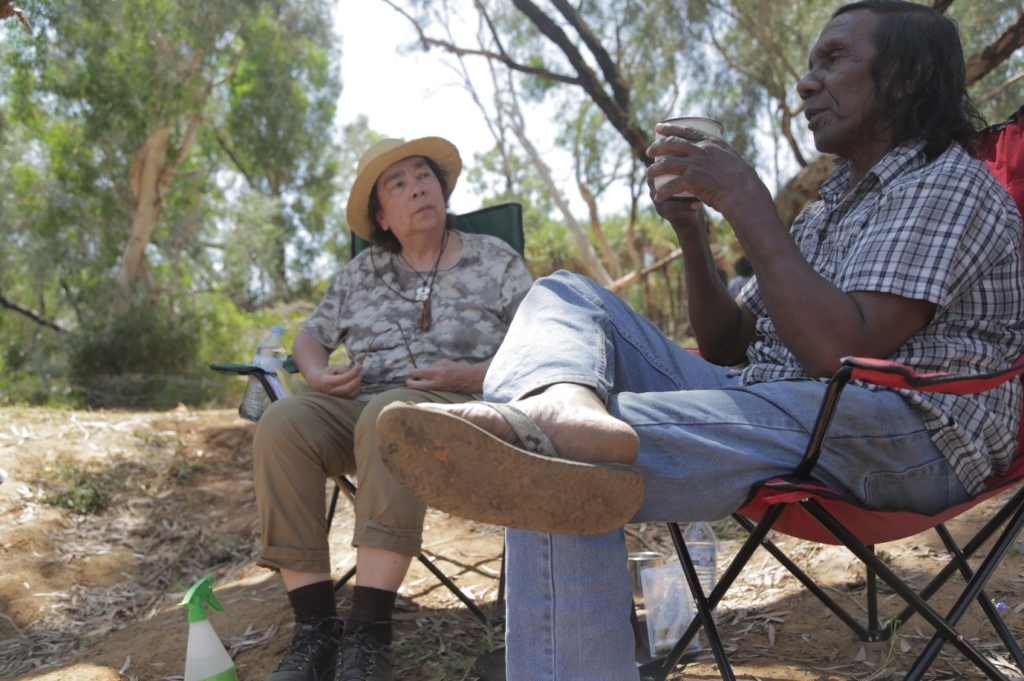
In their expansive riverside conversations, Walden and Wright ranged over many subjects and events. Through these emerged the story of Walden’s recovery of himself and his culture after the mission experience and his emergence as a no-backing-down political leader for the Gangalidda.
Country and dreaming: Walden explains the storylines that connect Gangalidda to other communities across the Gulf and Australia. He tells stories from the dreaming that shape the relationship of Gangalidda to their country, and explains his and his families’ totems and his experiences of totemic spirits when spending time on country.
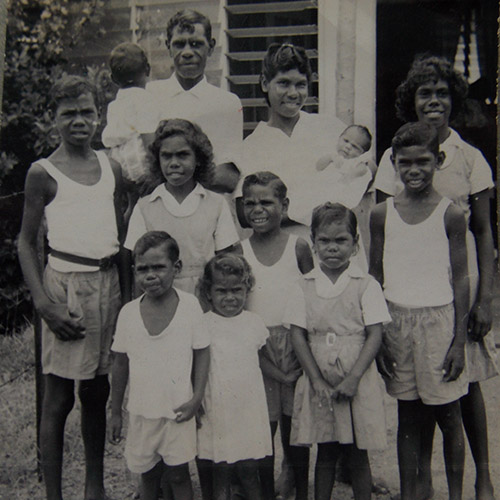
Family and stockman days: Walden tells of his training as a stockman and subsequent work on stations across the gulf. This was a period in which he was able to spend a lot of time with his father, grandfather and uncles who taught him about his culture. He tells stories of the working life on the stations and the pride and pleasure that its challenges gave him, he relates his problems with alcoholism and his rehabilitation from it by spending time alone on country, and he describes the way in which his stockman skills and knowledge shaped his sense of self and approach to politics.
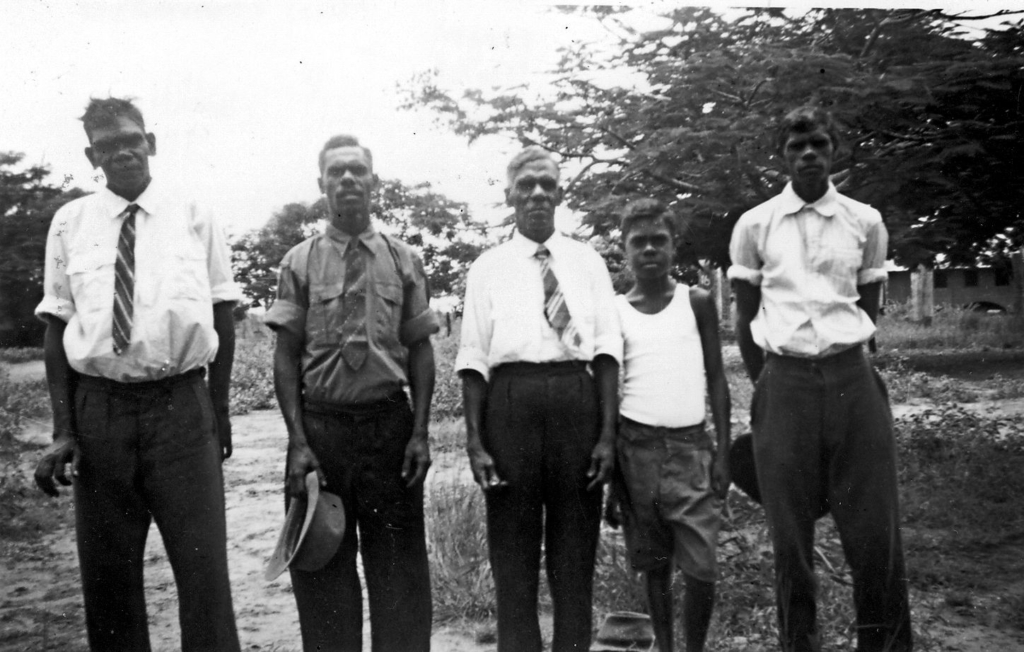
Politics and political leadership: Walden describes his turn to politics in the 1980s, something catalysed when his father, Herbert Walden, was charged with killing a bush turkey. He went onto win his case for native hunting rights in the High Court of Australia, inspiring Walden to run for mayor of Doomadgee. Walden tells of the various political roles he occupied subsequently: his campaign to stop the Century zinc mine in the 1990s (a major national campaign), his involvement with struggles over the management and delivery of healthcare in Doomadgee, including locking out the local minister Tony McGrady at the Doomadgee airstrip, his cultural and political mentors, and his role as a cultural and political mentor to young Indigenous men coming out of incarceration.
The ongoing struggle: Walden and Wright discuss the challenges that continue to confront the people of Doomadgee and the communities of the lower gulf. This includes ongoing subordination to imposed service providers, the battle for local Aboriginal ownership of community businesses, the fight against a new Century mine at Magazine Hill, divisions within the community, the fierce debates over constitutional recognition and treaty, and the ongoing demand for meaningful Aboriginal sovereignty.
Nothing But the Truth
This 52-minute radio feature was produced by Wright and Etherington and was broadcast on Awaye! on ABC Radio National on 8 June 2019 and officially launched at Western Sydney University in August 2019. It includes archival audio from historic news footage from political campaigns in which Walden was involved.
Straight from the Heart
This 37-minute screen documentary premiered at the international conference World Literatures and the Global South at University of Sydney in August 2019, and which subsequently screened at the Blue Mountain Writers Festival and the University of Melbourne. It includes archival audio from historic news footage from political campaigns in which Walden was involved as well as from the latter days of the mission period. Clarence’s address at the University of Sydney conference following the premiere can be found here. If you wish to view the screen documentary please contact Melinda Jewell (m.jewell@westernsydney.edu.au), who will seek permissions before sharing.
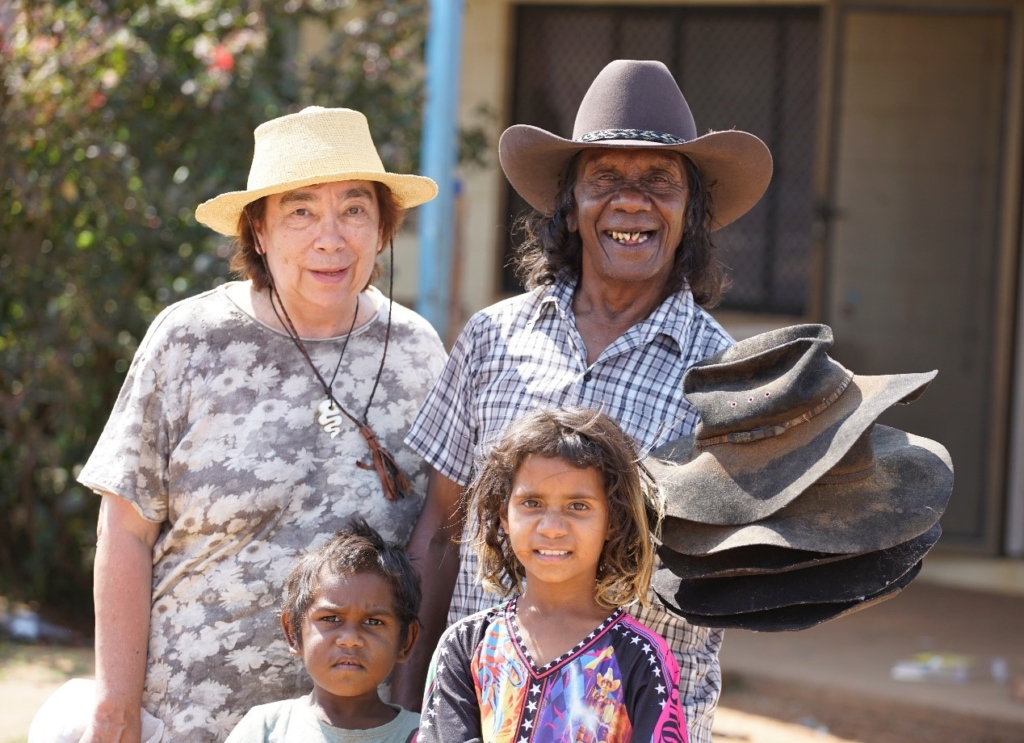
Photo top: Ben Denham

